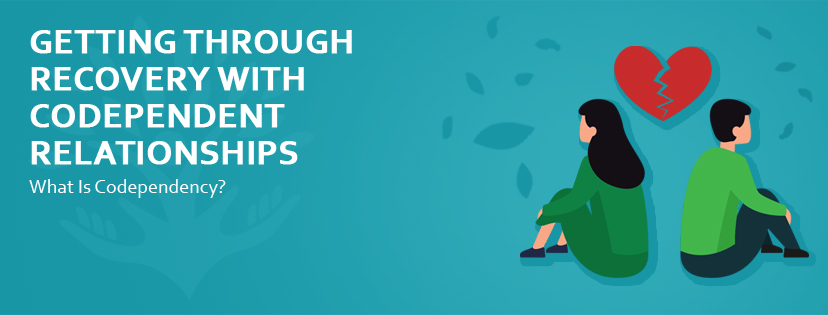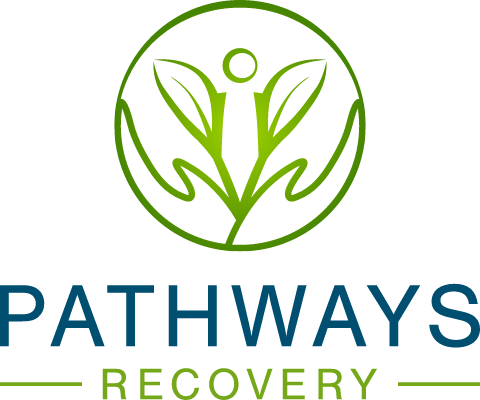Getting Through Recovery With Codependent Relationships
Recovery is a journey that can have ups and downs every day. Each day in recovery is something that requires a patient’s strength and the ability to count on support from caring treatment staff. Perhaps most overlooked is just how important strong, positive relationships with family and friends are in the phase of continued recovery.
We know that relationships with our loved ones may not always be healthy or happy, especially during the turmoil and challenges of recovery. But we believe that engaging in education about the best practices and information in the addiction recovery sphere are important for both patients and loved ones.
Today we’re taking a close look at codependency, including what it is, how it affects recovery, and what to do if you think you’re in a codependent relationship.
What Is Codependency?
Codependency is a particular behavioral condition that affects a relationship. This condition can contribute to an unhealthy relationship that is generally characterized as one-sided and may be emotionally destructive.
A co-dependent relationship can be frequently experienced by individuals struggling with substance use and the loved ones of the individual. Usually, the condition itself will affect family members, friends, and other individuals close to the person struggling with substance use.
Codependency is a relationship in which one party, usually the individual who uses, has many physical and emotional needs, and the other party, a family member or friend, devotes most of their time and energy trying to fulfill those needs. The second party is referred to as the codependent. Oftentimes, the codependent spends so much time and energy assisting the loved one that the codependent’s own life, activities, and relationships suffer in the process.
This behavioral condition can be detrimental to both parties involved in the relationship. The codependent’s individual life will suffer and the loved one might have a more difficult time with recovery and maintaining a life away from destructive, unhealthy behaviors. Usually, a codependent individual is overly attentive and can enable the challenges faced by the loved one, making the recovery journey more complicated.
There are recognizable symptoms of a codependent person. These include:
- Believing they can care for themselves without any help
- Low self-esteem
- Seeking recognition and praise from others
- Difficulty setting or maintaining healthy boundaries
- Feeling a need to be a caretaker for others
- Remaining extremely loyal, even in harmful situations
- Obsession with relationships, even if an emotional connection is lacking
- A need to please others and ensure others have a positive opinion of themselves
- Poor communication
- Difficulty handling change
- Often doing more than their share of work/responsibilities
Because of the low self-esteem that codependent individuals have, they may look for some kind of activity to keep themselves engaged and make themselves feel better. When a codependent person takes on the role of caretaker for someone going through addiction, the intentions are good. But eventually, the desire to take care of this person becomes a compulsion.

These kinds of behaviors often “rescue” the individual with an addiction and allow them to continue on a self-destructive path. In addition, the repeated “rescue attempts” encourage the vulnerable individual to depend more and more on the codependent and the unhelpful style of caretaking.
As we can see, codependency adds another layer of difficulty to the challenges of dealing with addiction and addiction treatment. Codependency can affect both parties on either side of addiction treatment: the individual with a substance use disorder and the close relations of that individual.
In the next section, we will explore in greater depth the negative consequences of codependent relationships on the various groups involved.
Negative Consequences for the Codependent
When a codependent partner is engaged in the codependent relationship with an individual who uses, the risks and negative consequences are increased for both parties. These consequences can take a toll on physical and mental health, as well as strain any external social interactions or relationships.

A codependent will also become overly devoted to the codependent relationship, thus experiencing a loss of any external relationships. All the codependent partner’s time and energy are devoted to this relationship with a loved one, and any responsibilities or activities that are not a part of this relationship will suffer as a consequence. A codependent may struggle to keep up with other tasks and work outside of the relationship.
Negative Consequences for the Addicted Individual
A codependent relationship can serve as an enabling presence in an addicted individual’s life. This can make treatment more difficult because the codependent may not provide the kind of support needed to obtain effective addiction treatment. Because codependent partners feel compelled to engage in a role as a caretaker, they can subconsciously worry about no longer being needed if an addiction habit is treated.
Attempts to seek treatment and actively engage in the recovery process may be hampered by the codependent partner. This obstacle leaves the addicted individual to continue on without receiving proper treatment for their addiction. Even if accessing treatment is a success, the risk of relapse may be higher due to the codependent relationship.
When an individual struggling with addiction enters into a treatment program, any codependent relationships should be discussed and treated alongside the substance habit. In this way, an individual can have a better recovery process and be more equipped to maintain good habits in the future.
Dealing With Codependency
There are multiple ways to handle codependent relationships. These tactics look for ways to help both parties in the relationship handle a change and evolution to a healthier status.
Get Professional Help With Codependency Recovery
An individual with substance use disorder should bring the concerns of a codependent relationship with them to treatment. Knowing that an individual has experienced this kind of relationship can be very helpful for therapists and staff to know. A treatment plan can be better individualized if behavioral conditions like codependent relationships are openly discussed.
If the case of the codependency is particularly severe, the codependent partner may also wish to consider seeking professional treatment. Mental health specialists can assist the partner in gaining a better sense of self-esteem and work through a variety of social skills that can be helpful in creating healthy relationships.
Setting Appropriate Boundaries
Establishing healthy boundaries is beneficial for both parties in a codependent relationship. Boundaries are key in maintaining a healthy relationship and can help both parties work through the challenges of codependency and addiction.
Healthy boundaries are characterized by the following traits:
- Naming limits
- Understanding that having different needs and wants is OK
- Practicing self-awareness
- Recognizing one’s individual needs
- Being assertive and consistent with boundaries
- Respecting the boundaries of others as well as your own
Is Tough Love an Appropriate Solution?

There are many different sources and organizations that suggest handing out ultimatums to a loved one with a substance use problem. In order to avoid enabling, these suggestions include backing out of the loved one’s life and refusing to be involved while the addiction habit remains. It may seem like this will surely prevent you from participating in any fashion as an enabler, and it will. However, it’s been observed that individuals in addiction treatment who have healthy, strong support from family and friends have a smoother recovery journey.
Because of how important positive support is in recovery, simply defaulting to the tough love method is not the most beneficial manner of supporting a loved one through addiction. Instead, try a healthy rewards system. You can support your loved one in constructive ways and actions like driving them to a job interview, offering encouragement, and spending quality time with them.
Make sure to also set boundaries as you seek to encourage your loved one. Don’t tolerate any substance use in the house or completely shut them out of your life. With the proper support and positive encouragement, sobriety can be maintained.
Here, at Pathways Recovery, we know that recovery is a process. Part of that process involves educating yourself and your loved ones about addiction and its challenges to transform lives. We can help if you are experiencing a codependent relationship during your recovery. Give us a call today at 916-735-8377.
Codependency Recovery FAQs:
What are the signs of a codependent person?
A codependent person suffers from low-esteem. They often feel compelled to seek praise from others and highly value the opinions of others. They may feel as though they should be a caretaker. If the codependent relationship involves an individual struggling with addiction, the codependent partner may enable the addiction and hamper recovery efforts.
What is a codependent behavior?
Codependent individuals often make excuses for the individual they are the “caretaker” of. For example, a codependent might cover for their partner’s alcohol dependency or pull strings to prevent any consequences for poor performance or behavior.
What causes codependency?
Codependency is a learned behavior. This means that a codependent person learned to behave in this manner by watching and imitating others, usually family members, who were also codependent. This type of behavior can be passed down from different generations.
What is an example of codependency?
If an individual with an addiction misses several days of work, the codependent partner will cover for them with a story or excuses.


